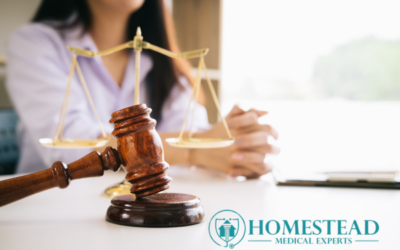Why Clear Communication Is Key to Expert Testimony That Works
When you’re deep into the preparation of a case, juggling deadlines, discovery, and depositions, it’s easy to assume that your expert witness is on the same page. After all, you hired someone experienced, intelligent, and respected in their field. They’ve testified before. They “get it,” right?
Not always.
One of the most common—and costly—mistakes we see in expert witness management is assuming that the expert already understands the legal strategy behind your case. This assumption can create disconnects between legal theory and expert testimony, leading to missed opportunities, inconsistent narratives, and in some cases, direct harm to your client’s position.
Here’s why this happens—and how to make sure it doesn’t happen to you.
The Expert Knows Their Field. You Know the Law.
But who’s connecting the dots?
Your expert may be a top neurologist, structural engineer, or forensic accountant—but unless they’ve been given specific guidance, they don’t know which legal elements you’re trying to prove or how their opinions tie into your broader case strategy.
What’s more, legal terms like causation, standard of care, or reasonable certainty carry precise meanings in court that may not match how they’re used in academic or industry settings. That gap in understanding can lead to confusion or, worse, disqualification of their testimony.
Real-World Consequences of Misalignment
We’ve seen cases derailed because:
- An expert offered a well-reasoned opinion, but it did not align with the core legal theory.
- The expert didn’t understand the burden of proof and presented their findings with too much ambiguity.
- Conflicting terminology created credibility issues under cross-examination.
- The expert introduced new or unexpected opinions that didn’t align with your narrative.
These issues are preventable—but only if attorneys take the lead in strategic alignment.
How to Strategically Align Your Expert
Here’s how to ensure your expert is reinforcing your legal strategy, not working against it:
1. Start With a Strategy Session
Before you dive into documents or ask for a report, schedule a meeting to walk your expert through the case’s core legal issues:
- What are you trying to prove or disprove?
- What elements of the claim or defense are in dispute?
- What specific questions are you hoping their expertise will answer?
This provides context that helps the expert tailor their analysis and stay focused on what’s relevant.
2. Translate Legal Terms into Plain Language
Don’t assume your expert understands the courtroom definition of negligence or proximate cause. Explain what these terms mean in the context of your jurisdiction and how they apply to the facts of the case.
3. Outline What You Need—And What You Don’t
Be clear about:
- The specific issues you want them to address
- Areas outside their scope (to avoid overstepping)
- What kind of support will you need—written reports, deposition testimony, visuals, etc.
This prevents scope creep and keeps your expert within the boundaries that will make their testimony most effective.
4. Provide a Case Timeline
Let the expert know where you are in the litigation process and what deadlines are coming up. Whether you’re prepping for deposition, settlement negotiations, or trial, the expert should know the timing and stakes.
5. Review Draft Reports Carefully
Make time to go through drafts of the expert’s report with a fine-tooth comb. Ensure the language is strong, the conclusions are clear, and that the content aligns with your legal objectives.
6. Rehearse Key Themes
In prep for depositions or trial, walk your expert through the themes of your case and how their testimony supports those themes. This isn’t about coaching—it’s about clarity and coherence.
Your Expert Is an Asset—When Used Strategically
An expert’s role is to support your case, not drive it independently. It’s your job to ensure their technical analysis aligns with your legal narrative. The most successful attorneys don’t just “use” expert witnesses—they collaborate with them.
At our company, we don’t just recruit experts. We help attorneys integrate those experts into the fabric of their case strategy. From the first consultation to the final deposition, we ensure your experts are well-informed, well-prepared, and aligned with your goals.




